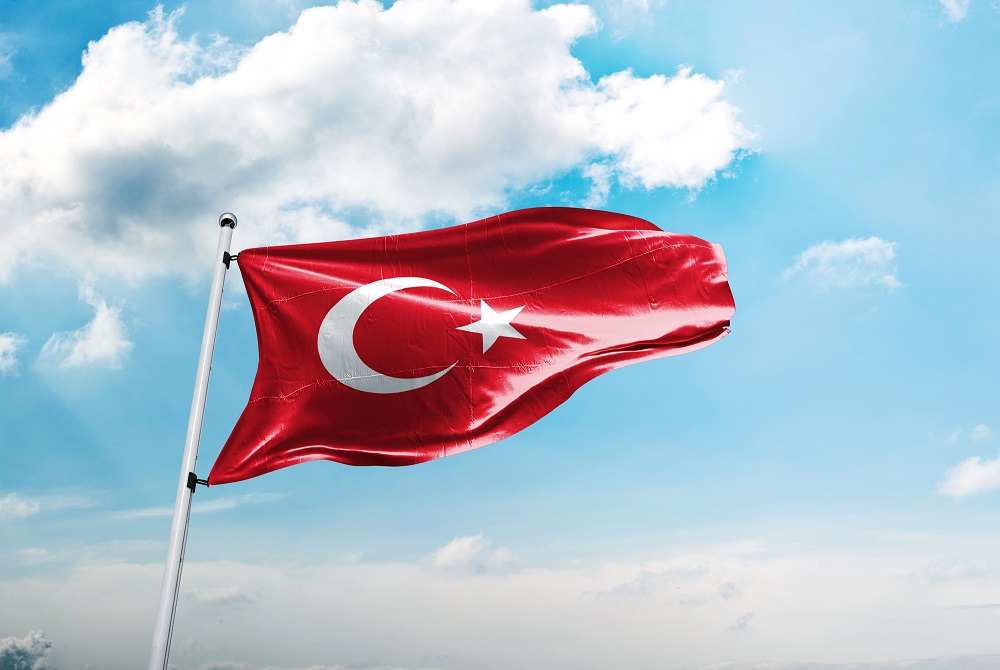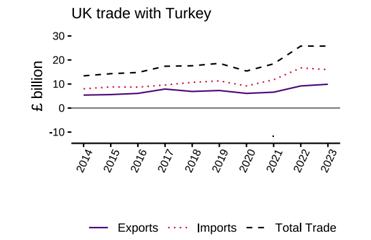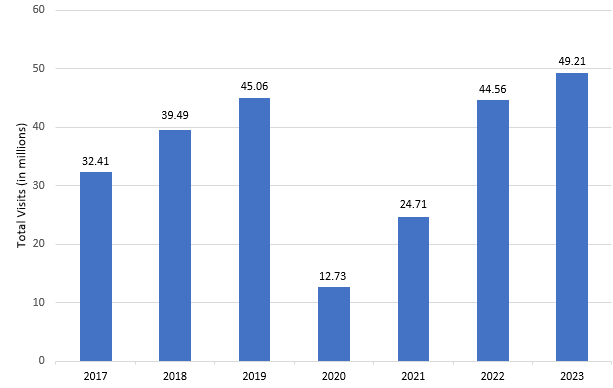Market Focus: Türkiye
Türkiye (formally known as Turkey) holds a unique position as a bridge between Europe and Asia, with a dynamic economy that integrates both Western and regional influences. Despite facing economic challenges, Türkiye’s resilience is buoyed by its strategic location, young population, and growing industrial and tech sectors. Türkiye holds an entirely unique position on the global stage due to its location, with 95% of the country being located in Asia, and 5% in Europe.

Country Profile
- Capital: Ankara
- Area: 783,562 sq km
- Population: 85.4 million (2024)
- Languages: Turkish, also Kurdish, Arabic, Zaza, Circassian, Laz
- Life expectancy: 74 years (men) 80 years (women)
Türkiye, not Turkey
In May 2022, Türkiye’s World Minister of Foreign Affairs Mevlüt Çavuşoğlu sent letters to the UN and other international organisations requesting for the country's change of name to be made official, this was accepted and recognised by the UN in June 2022. From that moment on, Turkey became officially “Türkiye.” Companies trading with Türkiye must make sure the correct country name is being declared in all their Trade Documentation. Noncompliance can cause documents to be rejected and shipment delays which can be costly.
UK-Türkiye free trade agreement
In July 2023, the Conservative government announced plans to update the free trade agreement with Türkiye. The current trade agreement includes a clause requiring the UK and Türkiye to review the current trading relationship, concluding that both nations should work to deepen their trading relationship. Negotiations started in March of this year, and under Trade Secretary, Jonathon Reynolds, trade negotiations will continue with various international partners to the UK.
Total trade in goods and services (exports plus imports) between the UK and Türkiye was £26.0 billion in the four quarters to the end of Q2 2024, an increase of 1.4% or £362 million in current prices from the four quarters to the end of Q2 2023.
Preferential tariff rates for bilateral trade in goods between the UK and Türkiye continue to apply as set out in the agreement. In some cases, the non-preferential applied rates for imports into the UK may in fact be lower because of changes in the UK’s Most Favoured Nation tariff schedule.
Exporters need to prove origin via self-certification to benefit from these preferential rates. For example, the good must be originating in one of the parties.
You can use online tools UK Integrated Online Tariff and Check How to Export Goods to check product-specific and country-specific information on tariffs and regulations that currently apply to UK trade in goods.
Economic landscape
Türkiye has faced extreme economic instability in the last decade, with inflation and fluctuations in the Turkish lira causing significant concerns for the country. The Turkish lira is experiencing depreciation compared to other countries in the region, which in turn is impacting import costs. The government has introduced policies to gradually reduce and stabilise inflation, whilst improving its global reputation and encouraging foreign investment. Curbing this inflation will be key for Türkiye’s growth.
Manufacturing matters
Türkiye has a well-developed manufacturing sector with a wide range of manufacturing industries, including textiles, automotive and electronics. Manufacturing is one of the country’s most diversified economic segments, accounting for a significant share of its GDP. In terms of global automotive supply chains, Türkiye is a key player and is home to well-known brands production facilities such as Toyota, and Ford. For UK exporters, Türkiye possesses modern ports, highways, and rail connections that support efficient transportation of goods.
Looking now at statistics, total trade (imports plus exports) between the UK and Türkiye has grown in recent years, with a steady increase occurring from 2014. This positive trade balance has been helping both nations to improve trade relationships. Türkiye was the UK’s 15th largest trading partner in the four quarters to the end of Q1 2024 accounting for 1.5% of total UK trade.

Above graph: UK trade with Türkiye in goods and services, Q1 2024. Source: Department for Business and Trade
Agriculture
Türkiye’s market dynamics present both challenges and opportunities for investors and businesses. Türkiye’s young workforce, location, and government support for strategic industries underscore its potential as a rising economic player in the region. Approximately, a third of Türkiye’s land is utilised for agriculture, with this historically being one of Türkiye’s largest exports. The country’s natural advantages, which include a warm climate and fertile land, pair for fantastic agricultural conditions. The use of modern technologies is assisting in improving the country’s sustainability rating so that agriculture can continue to be a driving force for the Turkish economy.
Tourism
Türkiye is home to some of the world’s most spectacular tourist destinations, including cities like Istanbul, and Antalya. Its rich cultural heritage remains at the heart of Turkish cities, with 17.4 million tourists visiting Istanbul in 2023 alone. In recent years, the Turkish government has been taking action to promote tourism, in areas such as eco-tourism and medical tourism. The rise of medical tourism has caused many Brits to travel abroad for their medical procedures, with the attraction of lower medical costs compared to the UK. This is a major revenue generator for Türkiye, and the industry will need both economic and political stability to sustain itself.
How many tourists visit Türkiye each year?

Above graph: Total of tourists visited Türkiye 2017-2023. Source: Road Genius
Bespoke market research
International trade presents exciting opportunities but can also feel daunting, particularly for businesses new to global markets. To succeed, it’s crucial to approach it with careful preparation, attention to detail, and guidance from market experts who can help you confidently navigate the complexities of global business.
The London Chamber, through its Business Information Services - exclusively available to Premier Plus Members - provides companies with access to tailored overseas market insights. Our reports cover:
- Economic overviews of target countries
- High-demand UK products and services
- Export and import procedures
- Key considerations for doing business in specific countries
- Import and export data for the UK and global markets
As the UK's largest provider of trade documentation and certification services, LCCI can also assist with UK EUR1 Movement Certificates to streamline your exports to Türkiye and other countries, as well as information services, and consultancy.
This article was compiled with information from BBC, Britannica, House of Commons Library, PFE, Gov.UK, Hürriyet Daily News, Nations Online, Department for Business and Trade, and Statista.
This article was written by Freya Bishop, International Business Assistant, LCCI.

